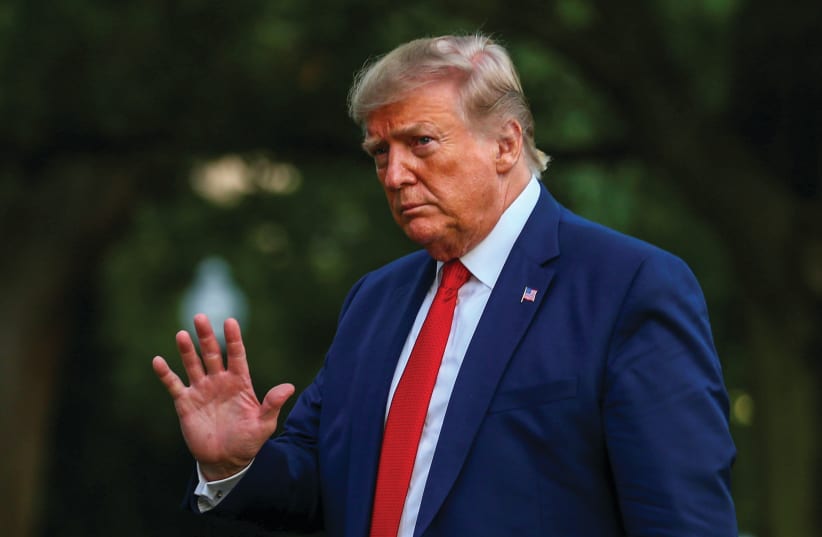A U.S. federal appeals court on Friday revived a lawsuit claiming President Donald Trump violated the U.S. Constitution by profiting from foreign and domestic officials who patronized his hotels and restaurants, adding to the corruption claims against Trump.
The New York-based 2nd U.S. Circuit Court of Appeals set aside a lower court ruling that had thrown out the case because the people who sued could not prove they were harmed by Trump's actions and his role as president.
The lawsuit, initially filed by plaintiffs including the watchdog group Citizens for Responsibility and Ethics in Washington, accused the Republican president of failing to disentangle himself from his hotels and other businesses, making him vulnerable to inducements by officials seeking to curry favor.
The case alleged violations of the U.S. Constitution's anti-corruption "emoluments" provisions, which ban the president from accepting gifts or payments from foreign governments without congressional consent.
The Justice Department, which is defending Trump in the case, could appeal to the U.S. Supreme Court.
A Justice Department spokeswoman did not immediately respond to a request for comment.
Trump, a wealthy real estate developer who as president regularly visits his own hotels, resorts and golf clubs, maintains ownership of his businesses but has ceded day-to-day control to his sons. Critics have said that is not a sufficient safeguard.
Friday's ruling comes in a lawsuit filed days after Trump took office in January 2017. The plaintiffs included a New York hotel owner, an events booker in Washington and a restaurant trade group that allege lost patronage, wages and commissions from clients who now prefer Trump's businesses over theirs because of the ability to gain the president's favor.
The plaintiffs cite examples of foreign government entities, including the Embassy of Kuwait and a delegation from Malaysia, choosing Trump's properties, such as the Trump International Hotel in Washington, over other venues.
The Justice Department had urged the appeals court to bury what it called a "manufactured lawsuit" because the plaintiffs cannot show that the harms they incurred can be traced to Trump's financial interest in his businesses rather than other reasons.
